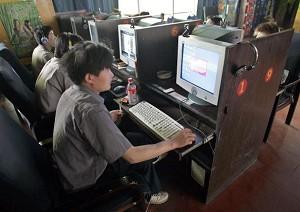The Chinese government’s strict control of Internet discussion continues to raise international media’s concern. US Newsweek reports that the Chinese government has been hiring Internet police to pose as normal Internet users on the Internet, in order to lead public opinion, and also to stop the Internet from being used as a tool to start a political movement. In addition, the recently opened website Guandian (Viewpoints) received a warning and was forced to delete articles about a Taishi Villagers’ petition to recall the village chief in Panyu District, Guangdong Province, as well as articles about the Chongqing Special Steel Company’s worker’s strike.
Wu Wei, host of the dissident web site Guandian said, “Guangdong Province News Office called us, saying the posting of those articles broke the Internet Administrative Rules, and requested that we delete them in two days. Otherwise our webpage will be blocked. Now we have been forced to delete these articles.”
It was reported that in order to monitor the more than 100 million Internet users in China, Chinese local governments hired about 30,000 to 40,000 thousand Internet police. These Internet police enter Internet forums as a normal user to lead the discussion and support the Chinese Communist Party’s policy, and eliminate any different voice at the beginning stages of discussion.
Wu said the Internet police are very popular, “An Internet friend of mine in Shanghai called a gathering of some Internet friends, and one of them told the others that he was with the National Security police, and requested that they cooperate. This tells us National Security police are already among Internet users.”
US Newsweek quoted a member of the Internet police, Ma Zhichun, who said that they led public opinion as a normal Internet user, and it was very effective.
Hong Kong commentator Zou Bing believes the use of Internet police “could only achieve its purpose temporarily or in the short term. Public opinion and official opinion are different because everyone has his own opinion, I am sure people will insist on their own value system even if it is different from the official view.”
US Newsweek also quoted Xiao Qiang, the Director of The China Internet Project at the Graduate School of Journalism, at the University of California, Berkeley that about one tenth of the web pages in China were built and maintained by the government, and that many forums are monitored by Internet police. Mr. Xiao estimated that for every piece of information posted by the Internet police, the average government spending is about US$8, or about 64 yuan. The overall cost is very expensive.
Zou commented about such estimate, “I am not sure how the cost was estimated; it might include salaries for these Internet police. However, there is no question that the CCP will squander money on propaganda, they never care about cost on this type of issue.”
Wu told the reporter that in August and September of this year, his wife was also affected another kind of censorship. She was asked to quit her job in an enterprise that has investments from a Taiwan business.


